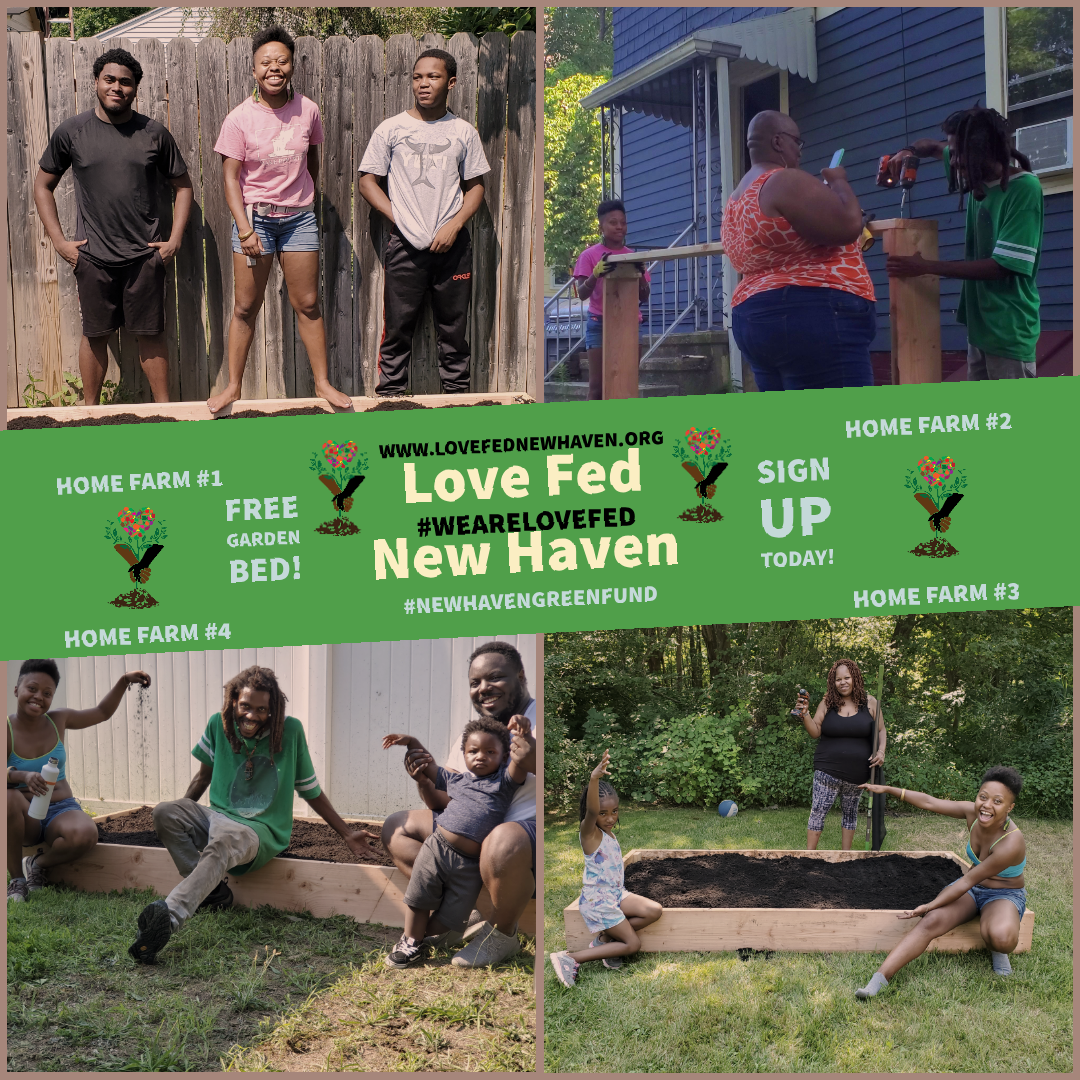Leader
Raven Blake
Location
New Haven County New Haven, CT 06511
About the project
For the summer of 2019, the Love Fed team and volunteers completed 25 Home Farm installations in the Greater New Haven area. There are at 22 families already on the waitlist for the Spring of 2020 and we are only approaching February! In addition to our Home Farms Campaign, in 2019 we shared knowledge well over 250 children and teens about urban farming and cooking intuitively through our partnership with ConnCAT and Co-op High School's after-school programs. We also helped teachers kick-start a school garden at Wexler Grant Community School and facilitated gardening education during the school day. This year, with the help of your tax-deductible donations & the matched funds we'll receive from Sustainable CT, we intend to:
1. Complete a minimum of 100 Home Farm garden beds during the spring/summer of 2020.
2. Have at least 30 volunteers garden with us regularly in our community garden plots.
3. Visit completed home farm projects at least 1 time during the growing season for troubleshooting support
4. Host bi-weekly workshops, educating our home farmers and community members at large about growing food in urban environments and cooking foods from the garden.
The Steps
1. Begin Home Garden Installations (4/15)
2. Start Bi-Weekly Workshop Series
3. 1st Community Event
4. 2nd Community Event
5. 3rd Community Event
6. Final Home Farm Installation
7. Final Community Event & Workshop Series
Why we‘re doing it
The motivation behind creating home farms was to provide people with a way to grow their own food at home and navigate around issues that form from trying to obtain plots of land in a city for farming or the uneasiness that some people have about participating in programs created by white-led food organizations in the area. Home farms remove the need to travel to community gardens which sometimes aren’t in the neighborhood, aren’t actively used, or are “full” with active gardeners and may be lacking in number of gardens available in neighborhoods in which we work. Given who we are as young black community leaders, we’ve found participants that we work with to be genuinely inspired and open to inviting us to their home to help them grow food, something we’ve found them feeling less comfortable doing with groups who may not resemble their kith and kin. Home Farms also presents an opportunity for people with certain ethnic backgrounds to get back in touch with their agrarian heritage, a connection that they may have lost over a few generations.

